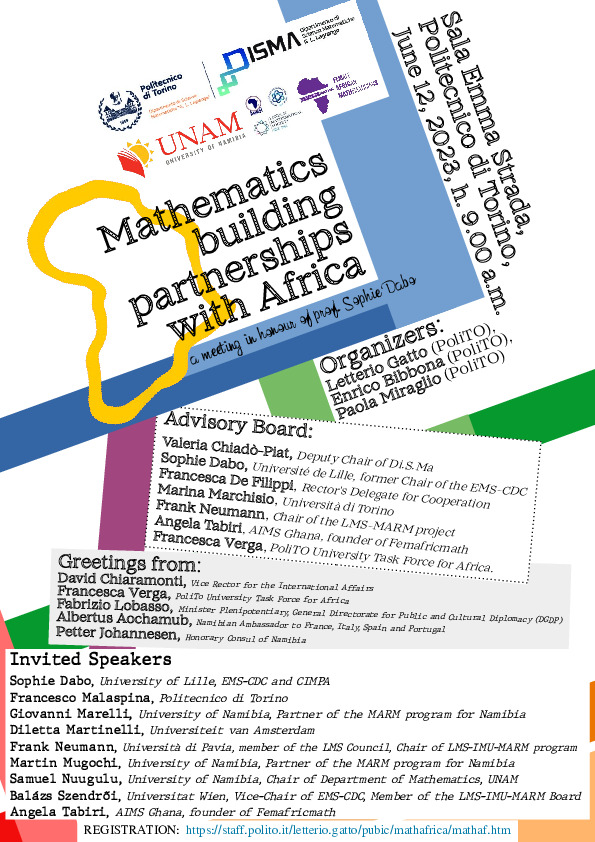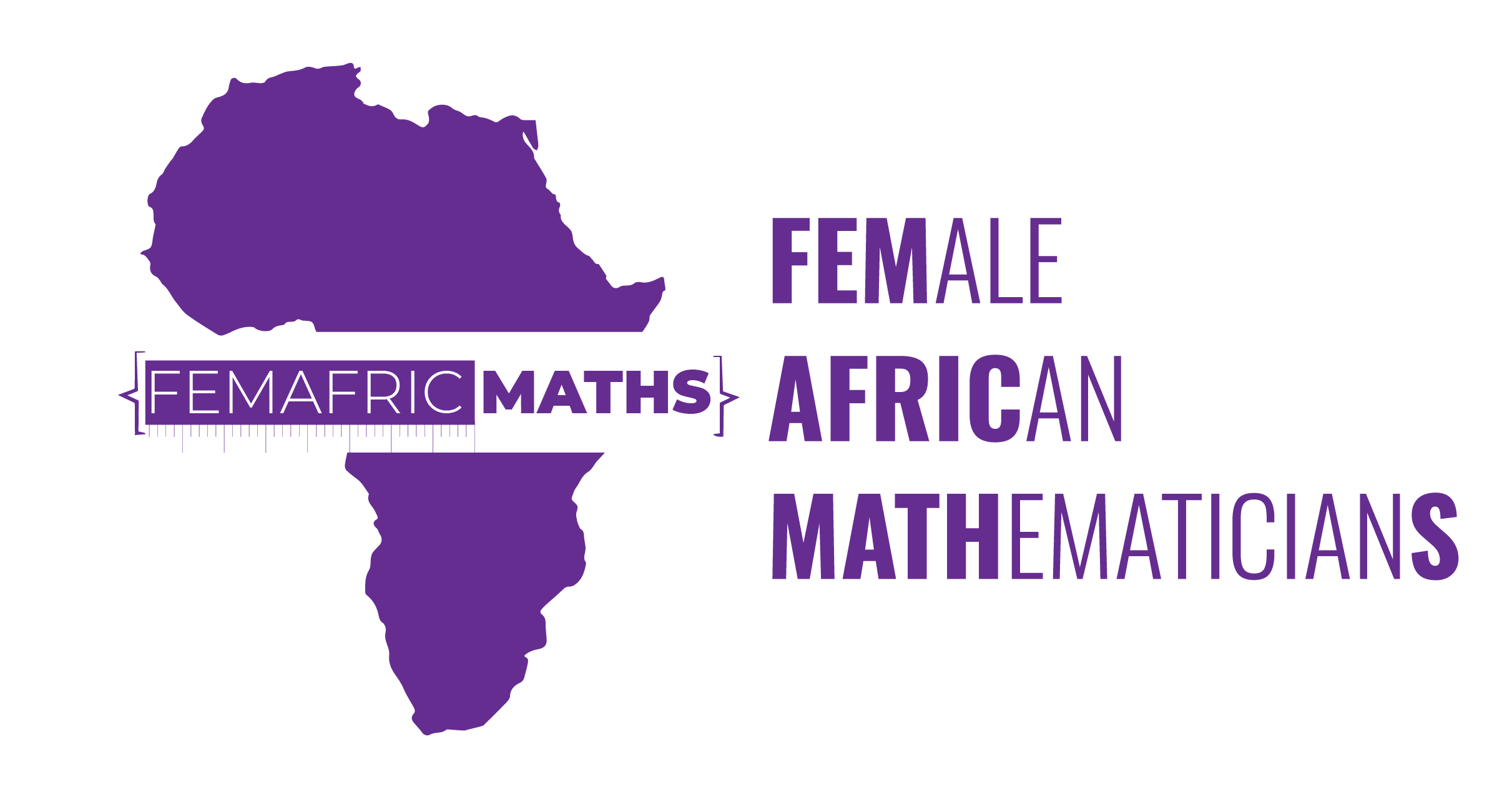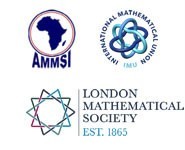|
Titles and
Abstracts |
|
|
|
Greetings by Meryl
Barry, Pupkewitz
Foundation
|
|
|
|
Sophie Dabo,
Université de Lille
|
|
The African perspective about
fostering Mathematics in the continent |
|
In this
talk, we aim to discuss about establishing long-term
scientific networks between African and developped
countries mathematicians to address issues from many
sciences in a necessarily multidisciplinary approach
involving theoretical and applied mathematical
developments. The development of such sustainable
networks (that may be open to other institutional or
industrial partners), can rely on various and diverse
collaborations that have existed for many years, and
African mathematical sciences environments (AIMS; CIMPA;
AMU; EMS, IMU, ICTP,...).
|
|
|
|
Diletta
Martinelli, UVA, The Netherlands
|
|
Reflection on teaching and
supervising students from the Global South |
|
Abstract. Since 2018 I have been
teaching and supervising students in many countries in the
Global South (South Africa, Kenya, Cameroon, Rwanda, Egypt
and Pakistan). I will try to describe my experiences and
highlight what are the main challenges the students I met
faced and what I believe could be possible effective
strategies in the future |
|
|
|
Francesco
Malaspina, PoliTo
|
|
Start of a mathematical cooperation in
South Sudan
|
|
Abstract. I
will report the attempts to start the first mathematical
cooperation activities in an isolated country like South
Sudan through two trips to the country, a master thesis by
a student of our university and the involvement of South
Sudanese teachers in a maths camp promoted by
international organizations in Kitale (kenya) for students
aged between 14 and 19 years.
|
|
|
|
Greetings by Giovanni
Marelli, Martin Mugochi, Samuel Nuugulu (University of
Namibia)
|
|
|
|
Frank Neumann,
Università di Pavia
|
|
Mentoring African Research in
Mathematics (MARM), the first 15 years |
|
Abstract.
The MARM programme links African academics with their UK
and European counterparts via professional mentoring
partnerships. In doing so, MARM provides the means
and opportunities for African mathematicians to develop
international working relationships while also improving
the quality of academic provision within their home
institution. We will give an overview of the MARM scheme
and discuss its successes and challenges |
|
|
|
Balázs Szendrői,
Universität Wien |
|
Equitable Africa-Europe
partnerships in pure mathematics |
|
Abstract.
I will describe some personal experiences of collaborative
research and training projects in pure mathematics with
African colleagues. I will draw out some lessons about how
one can aim to make these collaborations truly equitable
and mutually enriching. |
|
|
|
Angela Tabiri (AIMS
Ghana, Femafrimath |
|
Documenting the Stories of Female
African Mathematicians
|
|
Over the past
four years, Femafricmaths has been sharing the stories
of female African mathematicians. About 35 stories from
mathematicians from 13 African countries and 2 from the
diaspora have been shared on social media to
highlight the diversity in career options after a
degree in mathematics. This talk will highlight the
activities of Femafricmaths and possible collaborations
with individuals and organisations.
|
|
|





